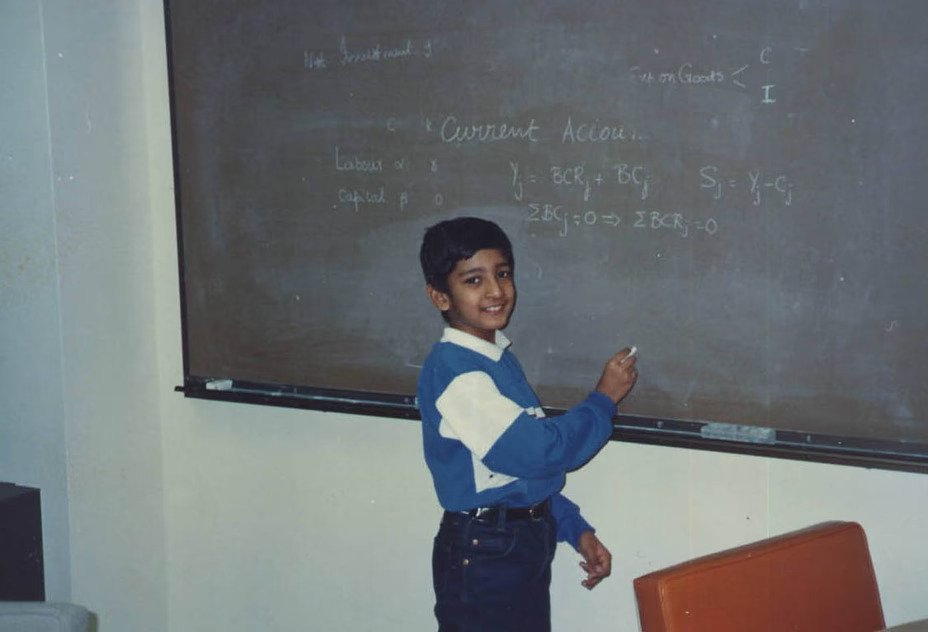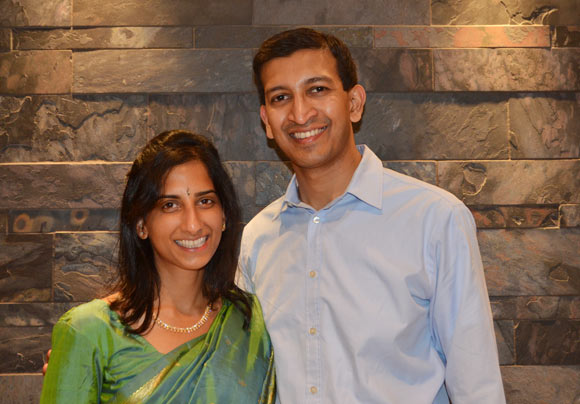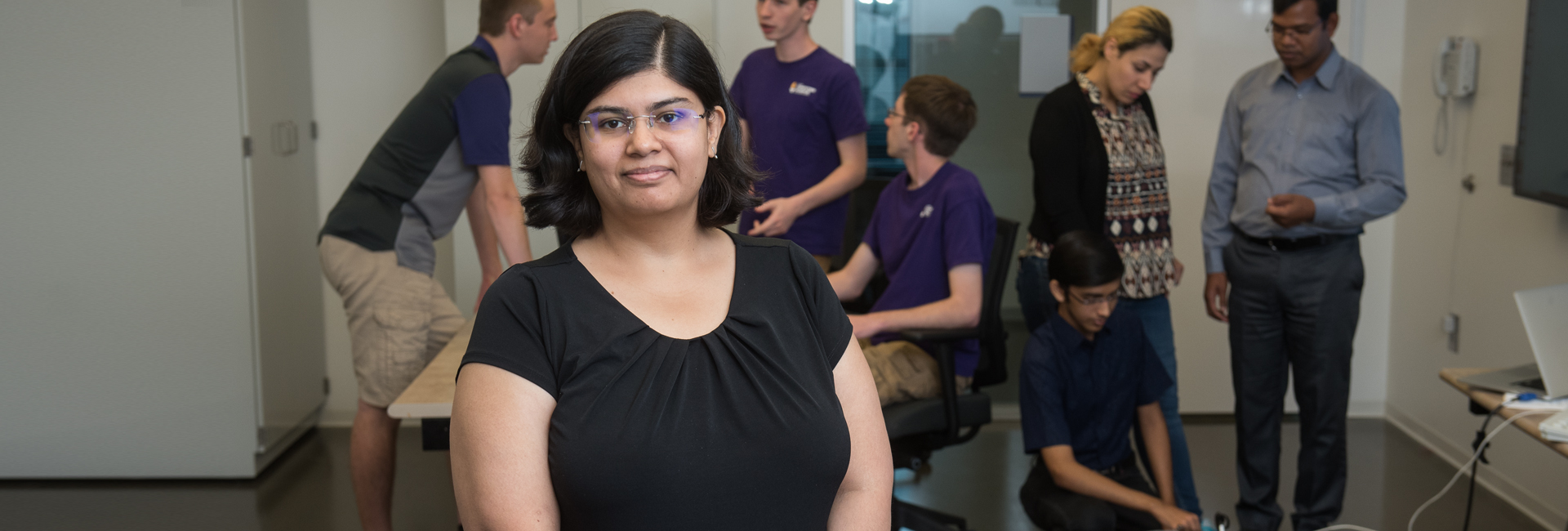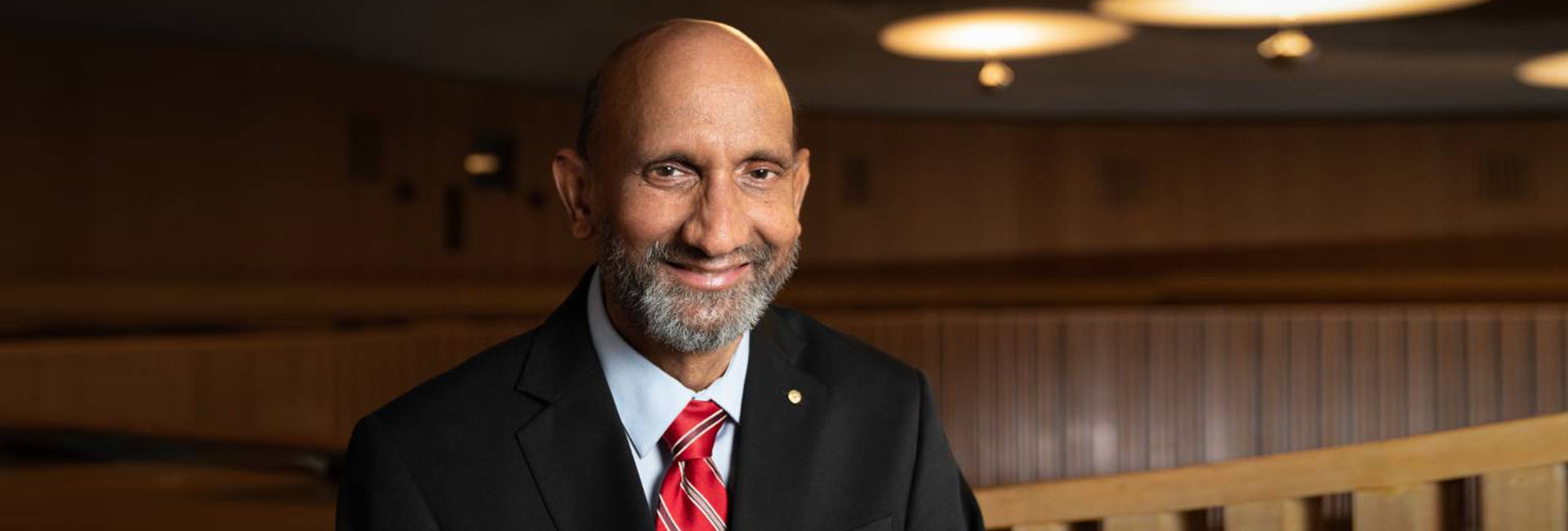(August 17, 2023) Nadarajan Chetty had his luckiest moment before he even came into the world. His mother, Anbu, secured a spot in the first group of 30 young women to attend a medical college. Her journey later brought her and her family to the USA, where her nine-year-old son got the opportunity to become a world-class economist – who has been awarded the Harvard University’s George Ledlie Prize for “wielding big data to break myths about who achieves the American Dream and the obstacles faced by others.” The Indian American, who is the William A. Ackman Professor of Economics at Harvard University, is also the Director of Opportunity Insights, a group of economists based at Harvard who study inequality.

Economist Raj Chetty
“The big-picture goal,” Chetty had once told the media while talking about his work, “is to revive the American dream. A defining feature of the American Dream is upward mobility—the ability of all children to have a chance at economic success, no matter their background. And we aim to revive that dream.” The Global Indian, who became one of the youngest tenured faculty in the history of Harvard’s economics department, was also awarded the Infosys Prize in Economics, the highest monetary award recognizing achievements in science and research, in India.
A lifetime opportunity
Chetty’s mother who was raised in Tamil Nadu, stood out as the brightest student, but her opportunities were limited by tradition. Even though Anbu’s father supported her love for learning, there were no colleges nearby, and it wouldn’t have been considered appropriate to send his daughter far away for education. However, when Anbu was nearing the end of her high school years, a small miracle changed the course of her life. A wealthy local businessperson, who also had a talented daughter, made a surprising decision. He established a women’s college, right within his impressive home. Anbu secured a spot in the first group of 30 young women to attend this college. They studied English in the spacious courtyard, sheltered by a thatched roof. In the early mornings, Anbu took the bus to a nearby college to conduct chemistry experiments or examine frogs’ hearts before the men students arrived.

Nine-year-old Chetty
Eventually, Anbu enrolled in medical school despite her father’s initial disapproval. In 1962 Anbu married Veerappa Chetty, and Raj was born in New Delhi. At the age of nine, Chetty’s family relocated to the United States, and he embarked on a journey of achievement almost as remarkable as that of his parents. “My parents, who grew up in very low-income families and villages in South India … the opportunities they had were greatly shaped by the fact that they happened to be the ones who were picked to get a higher education in their families,” said the economist during an interview, “And I could kind of see how that’s played out through the generations in my own family, through the opportunities my cousins have had versus what I’ve had … ending up here at Harvard and the various opportunities I’ve had, I felt have stemmed from that.”
A scholar
A brilliant student from the very beginning, Chetty was the valedictorian of his high-school class. After finishing his school, the young economist joined the University School of Milwaukee and graduated in 1997. Chetty earned a Bachelor of Arts degree from Harvard University in 2000, where he continued pursuing his Ph.D. from the institution. “I was quite fortunate to complete my dissertation under the direction of Martin Feldstein, Gary Chamberlain, and Lawrence F. Katz. My thesis was titled ‘Consumption commitments, risk preferences, and optimal unemployment insurance‘,” the economist shared.

Raj and Sundari Chetty
Ambitious and focussed, Chetty became an assistant professor of economics at the University of California, Berkeley, eventually becoming a tenured associate professor there at 28. Just five years after starting his career, The Economist and The New York Times listed Chetty as one of the top eight young economists in the world, in 2008. And the next year, he returned to Harvard, where he was the Bloomberg Professor of Economics and the director of the Lab for Economic Applications and Policy.
Making America great again
While he has won several awards and recognistions, the work that has earned Chetty great renown resonates with his family’s past. He has led the way in a method that leverages recently accessible government data to illustrate the progress of American families over generations. This unveils noteworthy trends of both moving up the social ladder and getting stuck in one place. In a preliminary study, he illustrated that kids born in 1940 had a 90 percent likelihood of outearning their parents. However, for those born forty years later, that likelihood had dropped to 50 percent, akin to flipping a coin.
The Padma Shri awardee has been the man behind making the people believe in the ‘American dream’ again. “One of the core ideals, I think, of American society—and in some ways, the reason my own parents came to the U.S. like many other immigrants, in search of the American dream—is the idea that no matter what your background, you have a great chance of succeeding in America and of moving up in the income distribution relative to where you started. Our education research tries to approach that from one particular angle, as one factor that might matter,” the economist said.
His recent recognition, the Ledlie Prize, means a lot to Chetty because of its recognition of economics as a science. “One of the things I’ve been trying to push toward is making economics more of a science and viewed as a scientific field where it’s not just about making different assumptions and you have one view and I have another view and we kind of have a political debate but grounded in data, grounded in empirical science,” shared the economist, adding that he has a long way to go and much to research for making the US economy the greatest again.




